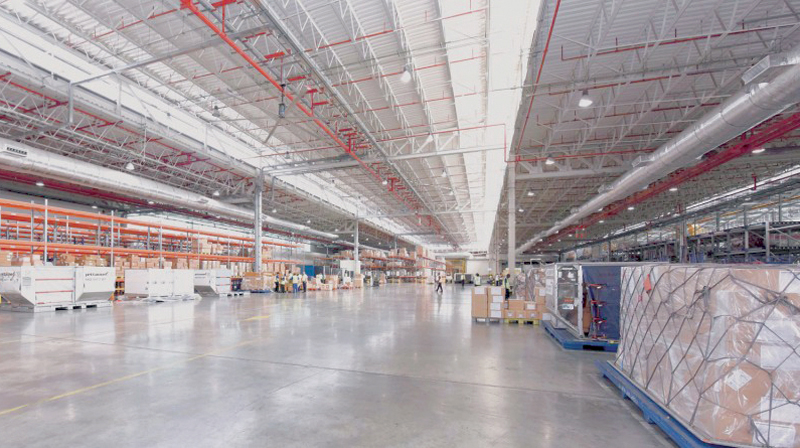

MUSCAT, JULY 23 - As many as four One-Stop-Shop (OSS) centres have been established at key locations around the Sultanate —part of an effort by Oman’s authorities to speed up cross-border cargo flows and thereby enhance the nation’s credentials as a logistics-friendly destination. According to the Oman Logistics Centre (OLC), a task force operating under the auspices of Asyad Group with the mandate the drive the implementation of the Sultanate of Oman Logistics Strategy 2040 (SOLS 2040), the One-Stop-Shops are presently in operation at Muscat International Airport, Sohar Port, Salalah International Airport and Suwaiq Port.
Their introduction, alongside the rollout of a number of trade facilitation initiatives, have gone a long way in easing cargo flows and boosting Oman’s ranking in the Logistics Performance Index of the World Bank Group, according to OLC. “The establishment of four One-Stop-Shops for inspection and coordination of government services was a significant contributor,” said Al Khattab al Maani (pictured), Executive Director, Oman Logistics Centre.
“Traders also now have access to modern procedures that facilitate warehousing and cargo management, providing new business opportunities for logistics hubs. Furthermore, traders can now fully clear import shipments before arrival of the goods. The proportion of these pre-cleared shipments rose from 1 per cent to 14 per cent in one year,” the official stated in an introduction to the Centre’s 2018 Annual Report.
Established under the auspices of the Royal Oman Police Customs, the One-Stop-Shops bring together under one roof all of the government agencies that have a role in regulating cross-border trade. The overarching goal is to simplify service delivery for the benefit of Omani importers and exporters, while enabling all of the border control agencies to perform their functions ‘at the same time and in one place’.
Importantly, the regulatory agencies operate under service level agreements which trigger the automatic release of a cargo if a decision is not forthcoming within two hours. Explaining the rationale behind this measure, the Centre said: “Risk management has introduced Customs and other government control agencies to the concepts of data driven decision-making and intervention by exception. This is helping government officials to better understand the trade community to facilitate ‘honest traders’ and intervene only when there is a reason to do so.”
According to OLC, the One-Stop-Shop initiative contributed to significant reductions in inspection rates in 2018, in turn slashing cargo dwell times and costs for traders as a result. By year’s end, only around 12 per cent of import shipments were physically inspected by Customs, with other government control agencies inspecting around 16 per cent of shipments, the Centre noted.
Oman Observer is now on the WhatsApp channel. Click here



